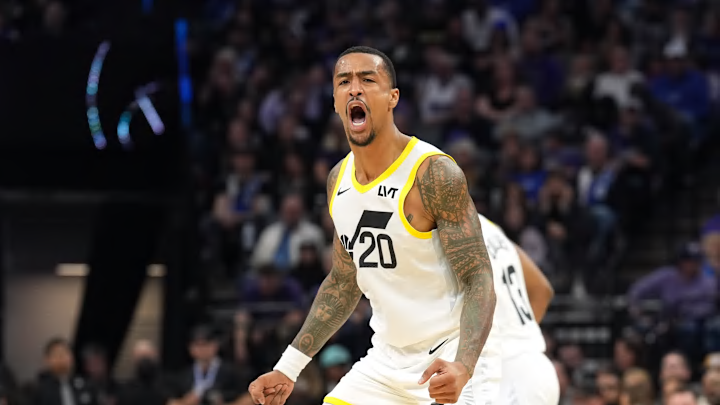Although it may feel like just yesterday when John Collins entered the NBA Draft, he is on the verge of his ninth season, with eight of them being split between the Atlanta Hawks and Utah Jazz. Two years before the high-flyer was traded, he signed a five-year, $125 million contract with Atlanta, which will come to a close next summer.
For $25 million annually, Collins produces ideally towards his paycheck. He is one of those big men who can play both sides of the ball and contribute to winning, but his value has been diminished due to health and injury concerns.
This could be why the Jazz never acted upon extending him, even though they may have wanted to, as the worry of him being hurt, and in street clothes, could have affected their vision of him as a complement to Lauri Markkanen, their franchise star.
Collins was essentially writing his own story, from a first-person point of view, and in 164 possible games where he could have suited up for the Jazz, the 2017 19th overall pick only stepped foot in 108 of them.
The 56 missed games in his two-year tenure in Salt Lake City foreshadowed the last year of his contract, which was identical in terms of availability, explaining why there may have been little resistance to holding on to him in the trade market.
Moreover, Collins is on thin ice next season and will be playing for more food on his plate with the LA Clippers. Thus, he has the ultimate power to stress the front office out with a stretch of elite performances.
Domination until February is all John Collins will need to give the LA Clippers' front office trouble on what to do next
Currently, the LA Clippers' plan for John Collins likely involves just one season, after which they will adapt to the market as he enters unrestricted free agency. He would have the opportunity to weigh his options, and if he enjoyed Los Angeles, Collins may re-sign.
However, Collins progressing next season as a key piece to why LA wins a number of games, with all-star-level averages, would put LA in a similar predicament to the one they faced with Norman Powell last season, not knowing whether to trade him at the deadline. They could move him, under the assumption that his value has peaked but will not last the entire season, or Collins' name could be submitted to a pay day.
Nonetheless, a stressful decision lies ahead, and it is something that should have already been brought up in front office meetings.
